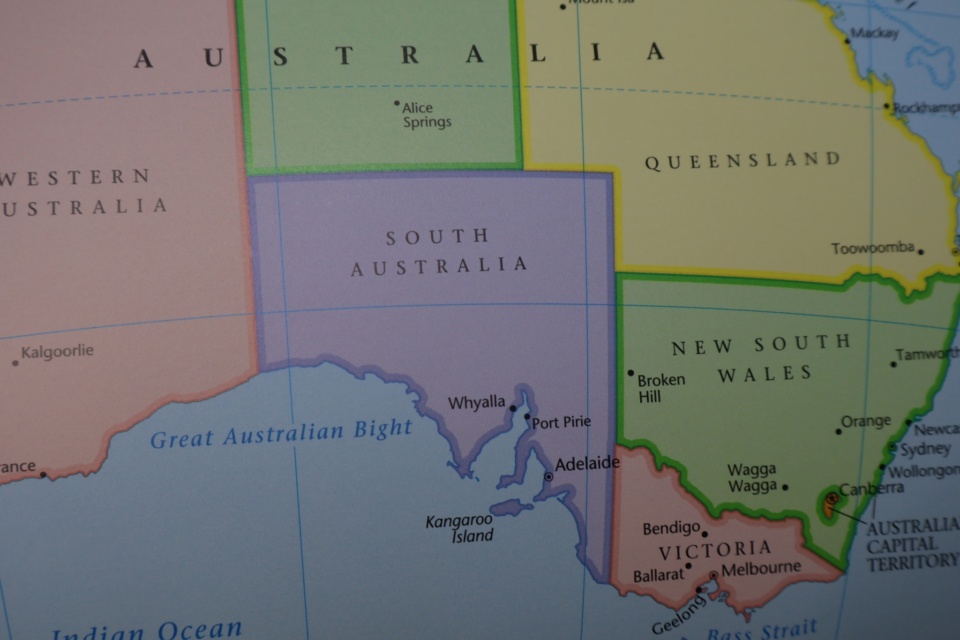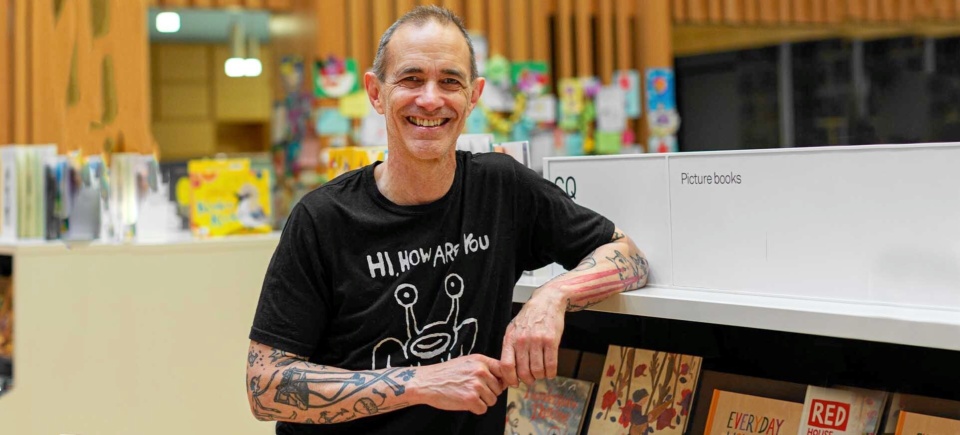
Why Australia’s community organisations need a new governance model
Posted on 25 Feb 2026
Australia’s community organisations are quietly holding society together. From local sporting clubs…
Posted on 07 Aug 2023
By Greg Thom, journalist, Institute of Community Directors Australia

When it comes to standing up for the rights of homeless children, the fire still burns bright in the belly of former federal Human Rights Commissioner Brian Burdekin.
Professor Brian Burdekin knows one thing above all else when it comes to child and youth homelessness: Having a safe roof over your head is a fundamental human right.
As author of the landmark 1989 report Our Homeless Children, the then federal Human Rights Commissioner blew the lid off a festering social issue many in society either knew little about or chose to ignore.
The report shocked the nation and ushered in a raft of reforms designed to alleviate the plight of homeless youth and ensure they were treated with dignity and respect.
Despite devoting much of his life in the years since to trying to find solutions to a problem many still place in the too-hard basket, Professor Burdekin has lost none of his passion for the fight.
In a blistering keynote speech at the recent National Children and Youth Homelessness Conference 2023 in Melbourne, Professor Burdekin at times shook with rage and came close to tears as he told a forensic account of missed opportunities, ignored reports and other failures to significantly improve the lives of some of the most vulnerable members of society.
“Three decades ago, we got the federal and state governments to actually focus on a specific plan to help homeless children and young people,” he told his audience of sector workers from across the country who operate at the coalface of youth homelessness.
“[T]here's many issues that we identified three decades ago that are not now being addressed.”
The professor’s comments coincided with the release of a report at the same conference which revealed that more than 17,600 of the nation’s homeless are aged under 12 years.
The study, conducted by disadvantaged youth advocacy organisation Youth Development Australia, also found that the total number of Australians aged under 24 who identified as homeless increased by 2,500 to 46,000 in the five years to the 2021 Census.
Sadly, it’s a tale Professor Burdekin has heard before.
“Young people with mental illness, young people with disabilities, Indigenous young people, LGBTQI+ young people and young people from rural areas – all of those [groups] are over-represented in our homeless youth population.”
Professor Burdekin praised the tireless efforts of frontline sector workers who he said played a key role in making a difference to the lives of those dealing with homelessness and related issues such as mental health problems, family violence and unemployment.
To his disappointment, however, he hears the same despair in the voices of young homeless people today as he did when he compiled his groundbreaking report more than three decades ago.
“Many of the young people [then] were disenchanted. They were disillusioned and in despair at what they saw as a society which was excessively focused on our economic parameters.
“So we needed to give those young people a sense that our government and our country really care, that we are a compassionate society, that we don't leave the most vulnerable and disadvantaged to fend for themselves in a society based on economic rationalism and survival of the fittest.
“After the recent Robodebt fiasco, young people told me they needed to hear that sort of message again.”

Professor Burdekin has rarely been out of the public eye since the release of his 1989 report.
His work with homeless young people led to his appointment in 1990 as chair of the Australian Youth Foundation, and he has been a patron of the Burdekin Association for homeless young people in Sydney and the Burdekin Clinic in Adelaide for more than two decades.
Professor Burdekin’s passion and expertise have transcended international borders, leading to advisory roles with numerous national human rights commissions around the world.
In 1995 he was made an Officer of the Order of Australia for his services to human rights in Australia and across the globe.
His vast international experience might have seen him become jaded, but it has only fueled his frustration that many of the same battles he fought decades ago in the war on child and youth homelessness continue to be waged in his own country.
“I still live on the edge of Kings Cross,” said Professor Burdekin.
“I wish I could tell you things are getting better, but I can't because we're still seeing many homeless children and young people who are either mentally ill or have serious mental health problems.”
This in one of the richest nations in the world.
“Where are our national priorities?”
“Are they with our child homeless? Are they with our Indigenous young people? Our young people with disabilities? Our young people battling with mental illness who often self-medicate with drugs and alcohol to cope with the pain?”
“I wish I could tell you things are getting better, but I can't because we're still seeing many homeless children and young people who are either mentally ill or have serious mental health problems.”
Professor Burdekin cited three main reasons for what he sees as a lack of progress on child and youth homelessness:
He said the answer is not more reports.
Rather, it’s a dedicated national plan focused on ending child and youth homelessness.
“The problems we identified in 1989 have been repeatedly and authoritatively documented for the past 30 years,” said Professor Burdekin.
“My view was, and it still is, homelessness is primarily and fundamentally a human rights issue.

“That [1989] report is the first national inquiry in Australia that has ever been based on human rights – that adequate shelter is fundamentally a human right, not just a housing issue, not just an economic issue, not just a welfare issue.
“In my view, all aspects of that are interrelated and flow very much from that fundamental premise.”
Professor Burdekin said that in Australia today the risk of homelessness for tens of thousands of children and young people has increased, a view supported by multiple community groups he has spoken to over the past six months.
“This is an urgent national priority that demands the urgent attention of our political leaders and indeed all our political parties: to have a policy related to ending homelessness for children and young people.”
Professor Burdekin said he has read and heard much about transport infrastructure of late, and he acknowledged the importance of new roads and rail.
“[But] our politicians have got to realise that our young people are a critical part of our social infrastructure and if we don't focus on them, not only will they suffer, but our society will also suffer.”
Professor Burdekin urged his audience to never give up the fight and to continue the work he helped start so many years ago.
“We owe it to young people and to ourselves to finish this agenda,” he said.
“Because we diminish ourselves and our community if we do not.”

Posted on 25 Feb 2026
Australia’s community organisations are quietly holding society together. From local sporting clubs…

Posted on 25 Feb 2026
Writing communications for donors, stakeholders, regulators and the public can be a relentless task…

Posted on 25 Feb 2026
A Victorian suburb's hot debate about whether trains should live underground or in the sky ended…

Posted on 25 Feb 2026
Three years after the federal government announced that national fundraising principles would be…

Posted on 25 Feb 2026
Author Andy Griffiths has spent 30 years bringing “punk rock” to children’s books, making kids…

Posted on 25 Feb 2026
Senator Dean Smith is back as shadow minister for charities, and he’s told the Community Advocate…

Posted on 18 Feb 2026
Around 50 per cent of all funding for charities in Australia comes from government. The nature of…

Posted on 18 Feb 2026
You wouldn’t try to fix a complex system with one tool. You’d widen the toolkit, improve the…

Posted on 18 Feb 2026
Australia’s champion laundry van charity, Orange Sky, has announced it is ready to expand into…

Posted on 18 Feb 2026
To have any hope of hitting the grand plan of doubling philanthropy by 2030, Australia needs one…

Posted on 18 Feb 2026
When Nyiyaparli woman Jahna Cedar travels to New York next month as part of the Australian…

Posted on 17 Feb 2026
This is the full academic version of Dr Oksana King's thoughts on the need to better compensate and…